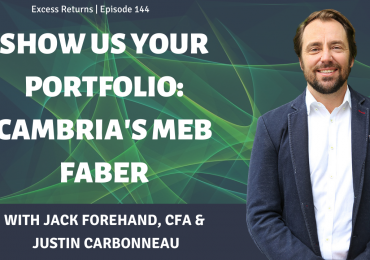In his latest book, “Global Asset Allocation: A Survey Of The World’s Top Investment Strategies,” Meb Faber examined the asset-allocation approaches of several renowned investors. His findings indicate that you should be more concerned with fees and taxes than you should be with the specifics of your allocation.
“We wanted to show that investors spend probably 90 percent of their time obsessing over the allocation — how much to put in stocks; should they own gold; how much in XYZ — as do professionals,” Faber tells ETF.com. “But — and this was actually surprising to me — all the most famous guru-style strategies had vastly different exposures: some 25 percent in gold, some zero and the end result ended up being very similar, with the exception of permanent portfolios. The spread between these 15-odd portfolios we looked at was less than 1 percent a year. The point we made in the book is that while most people spend 90 percent of the time thinking about allocation, what they should be spending 90 percent of the time on — if they’re doing buy-and-hold — is minimizing fees and minimizing taxes.”
Sign up for The Guru Investor’s FREE Weekly Newsletter
Faber also talks about why he thinks the standard 60/40 stocks/bonds allocation is problematic, and he discusses why he’s looking beyond the US. “The valuation is the biggest argument, by far, right now,” he says. “Because of valuation and because of the way the world is probably moving over the next 50 years, I think a 60/40 with strong home-country bias is suboptimal.”
“There’s no reason to concentrate [in the US],” he adds. “We live in a global world where the U.S.’ percentage of GDP is only about 20 percent, and half of world market cap. At a minimum, in my mind, you should be half foreign.”

